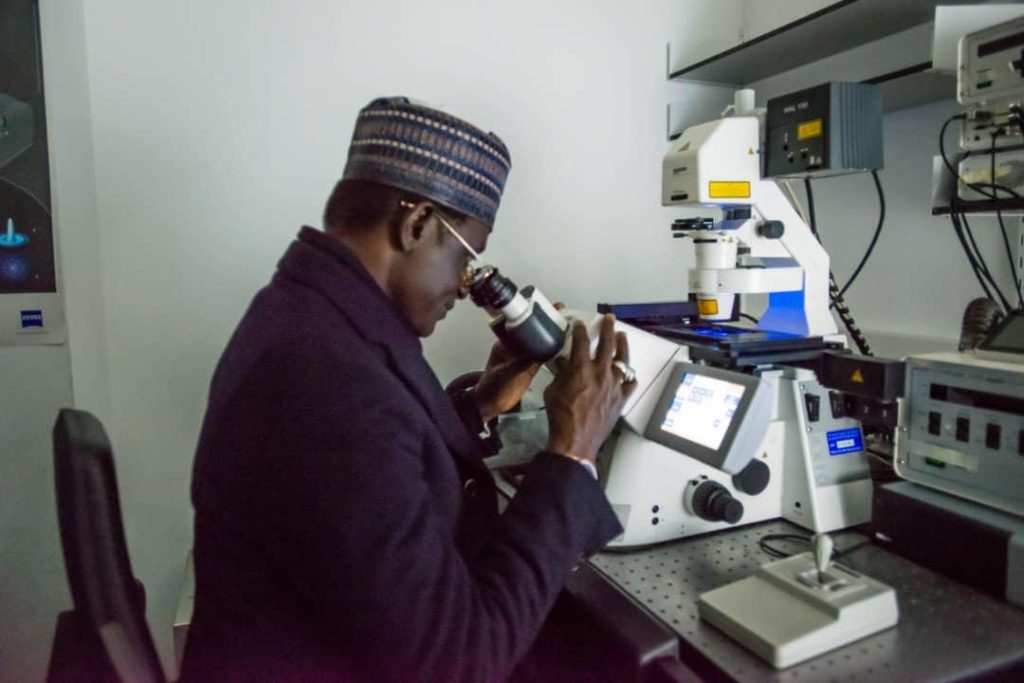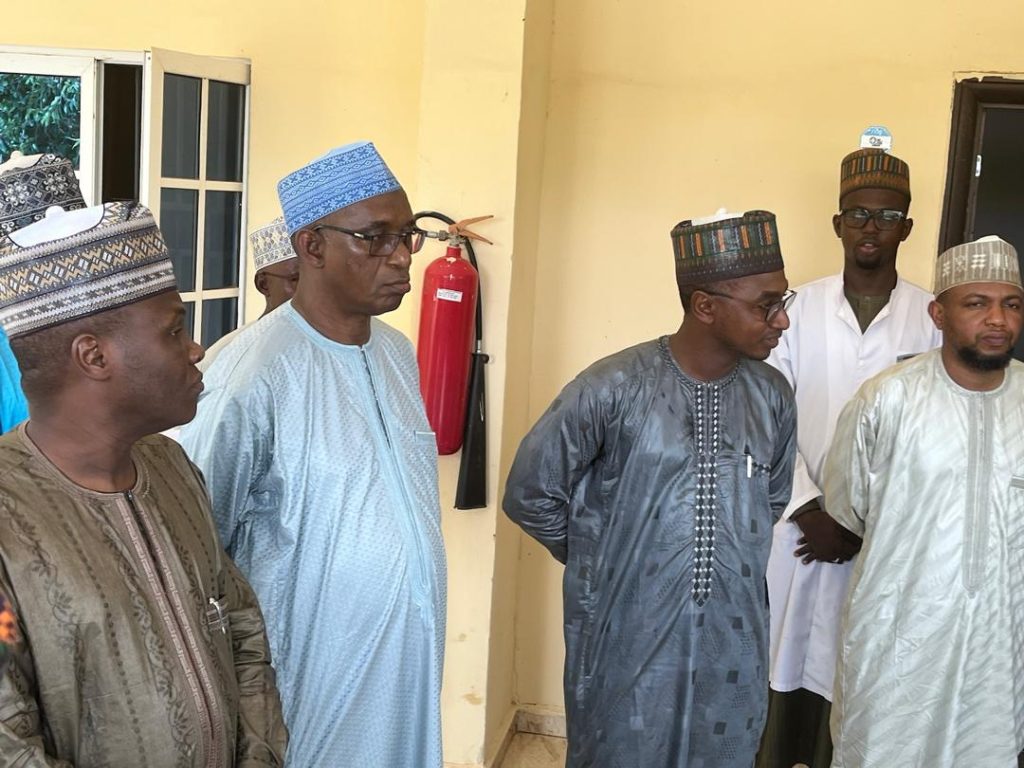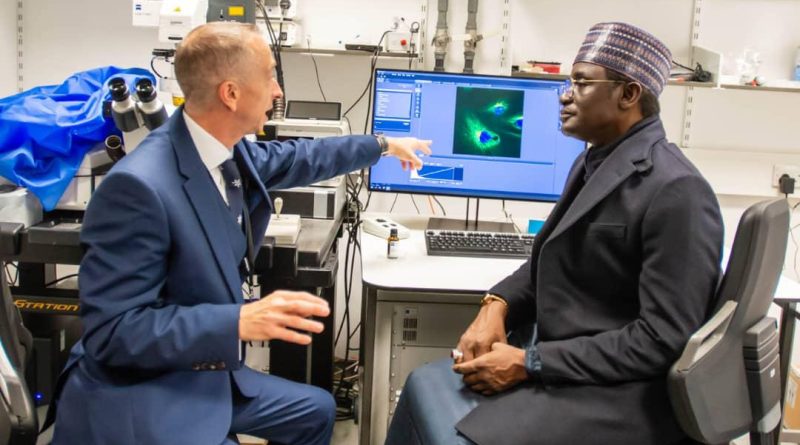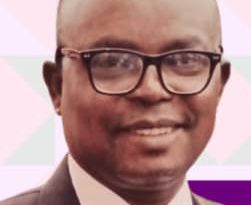Buni Setting Yobe On The Path Of Becoming Nigeria’s Medical Tourism Destination With Research Centre And Worthy Hospitals
Yobe State is gradually getting something right in the medical field as it has in place a medical research centre and classic hospitals all through the effort of Governor Mai Mala Buni, Olabode Olugbode reports:
Research is essential in various aspects of life, offering numerous benefits includingKnowledge advancement (Research expands our understanding of the world, uncovering new information and insights), Problem-solving (Research helps address real-world issues, developing solutions and improving lives), Innovation (Research drives innovation, leading to new products, services, and technologies), Evidence-based decision-making (Research provides a basis for informed decisions in fields like healthcare, policy, and business), Critical thinking (Research promotes critical thinking, analysis, and evaluation of information), Academic growth (Research is a fundamental aspect of academic development, advancing fields of study and disciplines), Improved practices (Research informs best practices in various industries, leading to improved performance and outcomes, Enhanced credibility (Research adds credibility to claims, theories, and initiatives), Collaboration and networking (Research fosters collaboration, building connections and partnerships) and Societal progress (Research contributes to societal progress, addressing global challenges and improving the human condition).

By conducting research, we can continue to learn, grow, and innovate, ultimately making a positive impact on individuals, communities, and the world at large. This informed the decision of Yobe State Governor, Hon. Mai Mala Buni to encourage the establishment ofAfrica accounts for 15% of the global population but 25% of the worldwide disease burden. However, little scientific research is done within the continent to address health and disease problems. Taking COVID-19 pandemic as an example, with a population of about 200 million, as of December 2020, less than 0.5% of Nigeria’s population were tested for COVID-19. This is partly because only a few laboratories in Nigeria have the necessary equipment for conducting COVID-19 testing.
Research laboratories across Nigeria also have a drastic shortage of laboratory equipment. As a result, most Nigerian scientists are unable to conduct cutting-edge research in areas of bioscience. For example, as of 2020, no institution in Nigeria has a functional confocal or transmission electron microscope. This challenge is compounded by low funding for scientific research and a relatively small number of active scientists. These barriers limit biomedical research and innovations from Nigeria and Africa at large.
To arrest this low point, Dr. Mahmud Bukar Maina, born and raised in Yobe State, Nigeria, became inspired to help address these challenges after joining TReND in Africa, a charity supporting scientific capacity building across Africa. It runs cutting edge biomedical training courses, provide universities with scientific equipment, run academic volunteering and outreach schemes, and support and work with African researchers. As the founder of TReND Outreach Programme, in 2017, he organized a science festival in Yobe State University to raise public understanding of science and start discussions about the need for having a sustainable hub for biomedical science research and innovation. Due to the enthusiasm shown in Yobe, in 2019, Dr Maina started collecting laboratory equipment from institutions and groups around the world through TReND in Africa to establish a state-of-the-art bioscience laboratory in Yobe State University, and as a result of the outpouring support received from groups and institutions worldwide, a laboratory was launched in August 2021, which called the biomedical science research and training centre (BioRTC) aimed at research and training in biomedical sciences to address local and global problems; and to become a centre of excellence in research and training in areas of biomedical sciences in Nigeria and Africa, helping to solve local and global health problems through scientific research, with the mission of becoming lead world-class research in the field of biomedical science, to provide training to scientists and health professionals, thereby fostering the development of highly skilled scientists in Africa, offer state-of-the-art core infrastructure to support biomedical science research, foster research collaboration with scientists and institutions both within and outside Nigeria to tackle local and global biomedical science problems.With very strong backing from Yobe State Governor, Hon. Mai Mala Buni, the BioRTC boasts of cutting edge equipment acquired through grants and donations facilitated by Maina.

This includes among others Zeiss Laser Scanning Confocal Microscopes (LSM 780 and LSM 700) which visualizes detailed cellular structures, confocal microscopy which provides clear, detailed images of cells and tissues by eliminating out-of-focus light, study cellular dynamics: live cell imaging capabilities that help in observing dynamic processes within cells in real-time, and multicolor fluorescence imaging which enables the simultaneous visualisation of multiple fluorescent markers, aiding in complex biological studies such as cancer research, neuroscience, and developmental biology.
The rest are Zeiss Laser Scanning Confocal Microscopes 780 and 700, LI-COR Odyssey imaging system, Applied Biosystems 7300 Real-Time PCR system, Full tissue culture suite, Cellular biobank, Nikon Eclipse Microscope 50i with fluorescence, Bio-Rad Mini-Protean System and UVP BioDoc-It imaging systems, and several others. With this Yobe State is perhaps the leading state in medical research as the governor continues to set the path of rejuvenating the state’s health sector and position the Northeast state as the the numero uno in medical tourism destination.Conducting journalists round the facility, the Deputy Vice Chancellor (Academics) of the university, Professor Mohammed Musa Lawal, who is also the coordinator of the centre, said the centre enjoys strong support from the state government.
“The centre was founded by Professor Maina with support from foreign varsities including University of Sussex. This research centre focuses on malaria, kidney disease and dementia among others. It also organises workshop with resource persons from around the world and participants from within Nigerian and around Africa,” he said.
In his virtual remarks, the founder, Maina put the estimate of the equipment at the centre at over a billion naira, adding that some others were still being expected to facilitate further research work.He said the choice of Yobe came because it is an example of places within the region with low resource and in conflict, adding it’s also a way of giving back to the community where he was born and raised.
The neuroscientist has never hidden his influence in getting the centre established in Yobe state, stating that: “As an indigene of Yobe State and given the commitment of the university’s management to promote teaching and research, I wanted to help establish a laboratory in the university which can be used for teaching and research.
“Having such a laboratory would enable us to mentor the next generation of African scientists in Nigeria and would make it easier for people like me to return home eventually to continue with research work. In a way, I am giving back to a community which has done so much for me.”
Inheriting a legacy of note from his predecessor, Alhaji Ibrahim Geidam, Buni during his inauguration a little over five years ago said: “The Yobe State Teaching Hospital has no doubt made impressive mark as a tertiary healthcare institution, providing efficient services to the people. No wonder, the state has become a hub of medical tourism for patients in search of qualitative medical attention.
“This administration considers it necessary to upgrade the capacities of health institutions in the State by providing state-of-the-art medical facilities and equipment to provide the best services to the people. Government will continue to look into the welfare of healthcare providers to enhance healthcare delivery.“
The Medical College established in the state university, will be nurtured and supported to provide a conducive learning environment for the training of manpower for our health institutions. As the saying goes, health is wealth; this administration is determined and committed to creating a healthy population for an economically prosperous state.”
He has since May 29, 2019 kept to his words and remained focused on ensuring that he endowed on the state a health sector worthy of note, five years on, the quality of the equipment and manpower available in the state’s health sector is a clear demonstration that the administration is consistently meeting the people’s health needs both in the areas of research and final service delivery. Today, Yobe houses a legion of medical equipment worth billions of naira, spread across Yobe State University Teaching Hospital and the adjoining Biomedical Science Research and Training Center (BioRTC) also in Damaturu, reputed to be the first in Nigeria.
The Yobe State University Teaching Hospital is one important place the Buni administration has invested a lot because of its importance to the health of the people of the state, the Chief Medical Director of the teaching hospital, Dr. Baba Woru Goni has this to say: hundreds of people receive kidney dialysis free of charge, this is because of the prevalence of the ailment in the state.
Goni during the tour of journalists of the facility, the 600-bed capacity maternal and child hospital in Damaturu, said with huge investment in the health sector by the Buni administration, the institution is being equipped with the state-of-the art facilities to be on top of reducing maternal and child mortality.
He noted that the hospital stands on a tripod of service delivery, training of manpower and research, insisting that “with the quality of equipment and manpower made available in our hospital by His Excellency, I make bold to say that we will be meeting the health needs of not just the Northeast states, but that of the entire north and even the country. We are working towards making this the nation’s medical tourism destination.”
While lamenting that Yobe has the highest number of kidney-related ailments in the country, he noted that: “So, the dialysis is all for free while we continue with the research to find a lasting solution to the problem. It is practically impossible for the poor to pay at least N50,000 for a session of dialysis. We thank the governor for his magnanimity.”
At the Special Care Baby Unit (SCBU), where preterm babies, those with jaundice and other infections, are kept in a facility designed by Prof Nicholas of Imperial College in London, for proper care for the first 28 days, he said five of such facilities, are available for use across the state.
In the area of manpower and welfare, Goni said 25 senior consulting lecturers were employed and a 32-room one-storey building made available by the state government for the Houseman-ship. Full locum service, a system where retirees are also brought on board to fill some vacuum for a brief period, is also put to use by the teaching hospital.
Some other areas, Buni has impacted the healthcare delivery to the next level in Yobe state, include upgraded four General Hospitals to Specialists Hospitals, and eight Primary Health Centres to General Hospitals, with all the necessary equipment and facilities befitting of Specialist, and General Hospitals thereby boosting the secondary healthcare delivery and bringing healthcare services much closer to the people of the state.
Some things are definitely happening in Yobe State worthy of the attention of other Nigerians, and one of those things is in the area of improvement of the healthcare and it is not only worth the visiting of other Nigerians but definitely to benefit from.




